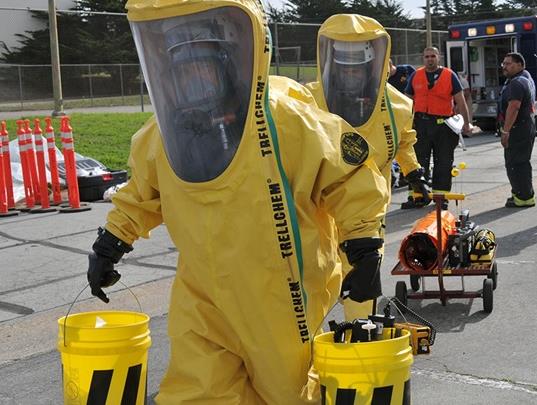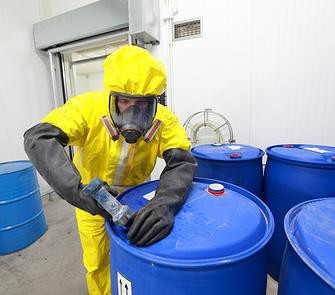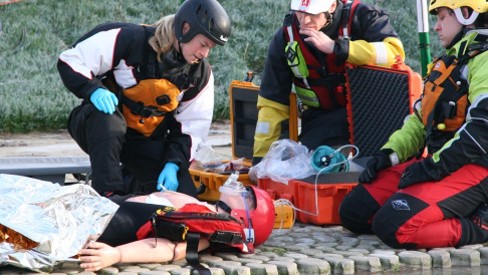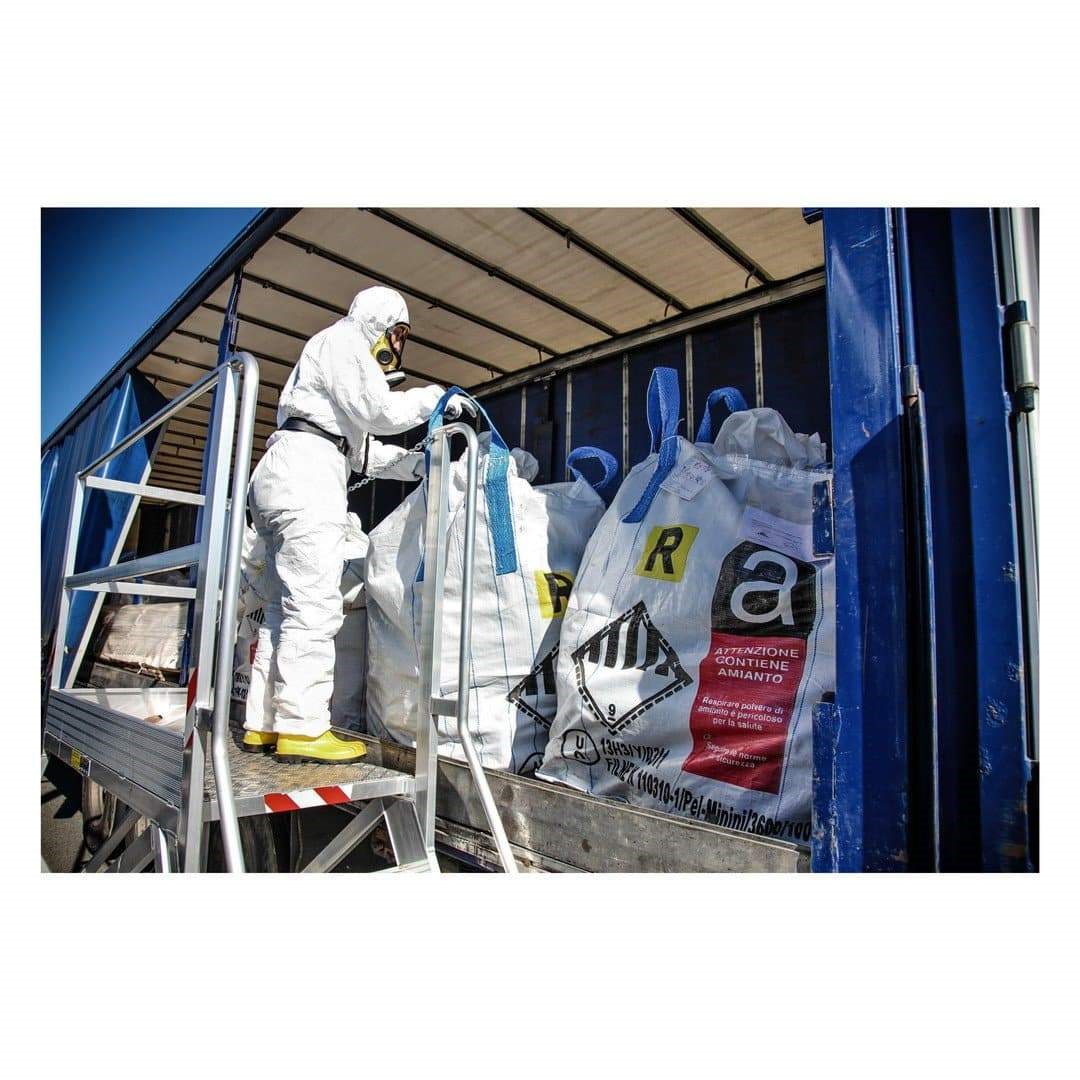COURSE OVERVIEW
HE0097 : Certified Process Safety Management (PSM): Auditing & Implementation

OVERVIEW
| COURSE TITLE | : | HE0097 : Certified Process Safety Management (PSM): Auditing & Implementation |
| COURSE DATE | : | Jul 13 - Jul 17 2025 |
| DURATION | : | 5 Days |
| INSTRUCTOR | : | Mr. Saad Bedir |
| VENUE | : | Dubai, UAE |
| COURSE FEE | : | $ 5500 |
Course Description
Unexpected releases of toxic, reactive, or flammable liquids and gases in processes involving highly hazardous chemicals have been reported for many years in various industries that use chemicals with such properties. Regardless of the industry that uses these highly hazardous chemicals, there is a potential for an accidental release any time they are not properly controlled, creating the possibility of disaster.
To help ensure safe and healthful workplaces, OSHA has issued the Process Safety Management of Highly Hazardous Chemical standards (29 CFR 1910.119), which contains requirements for the management of hazards associated with processes using highly hazardous chemicals.
Process safety management (PSM) is addressed in specific standards for the general and construction industries. OSHA’s standard emphasizes the management of hazards associated with highly hazardous chemicals and establishes a comprehensive management program that integrates technologies, procedures and management practices.
This is a foundation course for Process Safety Management as applicable to process industry. The course provides an in-depth study of each PSM element of HSEMS PSM program and how the overall architecture applies to each. The course introduces each PSM element and the specific guidelines for integrating PSM element requirements into their corporate program (such as quality and reliability programs) and evaluating program compliance throughout the implementation phase. This course also covers how to expand PSM program to include RBPS (Risk Based Process Safety) elements as proposed by the CCPS (center for Chemical Process Safety), Aiche, PSM program.
PSM System auditing is an independent appraisal function undertaken by an organization to examine and evaluate its activities. The objective of PSM auditing is to provide information to those in management in support of decision making and to assist members of the organization in the effective discharge of their responsibilities. To this end, PSM auditing may furnish the organization with analyses, appraisals, recommendations, counsel, or information concerning the activities reviewed the adequacy and effectiveness of the organization’s system of PSM control, and the quality of performance. The information furnished to different members of the organization may vary in format and detail, depending upon the requirements and requests of those commissioning the audit(s).
Throughout the world PSM auditing is performed in diverse environments and within organizations which vary in purpose, size, and structure. In addition, the laws and customs within various countries differ from one another. These differences may affect the practice of PSM auditing in each environment. The implementation of these Standards, therefore, will be governed by the environment in which the auditing function carries out its assigned responsibilities. Conformance with the concepts enunciated by the Standards is essential before the responsibilities of PSM auditors can be met.
TRAINING METHODOLOGY
This interactive training course includes the following training methodologies:
LecturesPractical Workshops & Work Presentations
Hands-on Practical Exercises & Case Studies
Simulators (Hardware & Software) & Videos
In an unlikely event, the course instructor may modify the above training methodology for technical reasons.
VIRTUAL TRAINING (IF APPLICABLE)
If this course is delivered online as a Virtual Training, the following limitations will be applicable:
| Certificates | : | Only soft copy certificates will be issued |
| Training Materials | : | Only soft copy materials will be issued |
| Training Methodology | : | 80% theory, 20% practical |
| Training Program | : | 4 hours per day, from 09:30 to 13:30 |
| Refrence | Date | Location | Instructor | Fee (USD) | Outline | Actions |
|---|---|---|---|---|---|---|
| HE0097 | Jan 25 - Jan 29 2026 (5 Days) | Dubai, UAE | Mr. Saad Bedir | $ 5,500 | Outline | |
| HE0097 | Feb 01 - Feb 05 2026 (5 Days) | Dubai, UAE | Mr. Ron Jansen | $ 5,500 | Outline | |
| HE0097 | Apr 19 - Apr 23 2026 (5 Days) | Istanbul, Turkey | Mr. Saad Bedir | $ 6,000 | Outline | |
| HE0097 | Aug 09 - Aug 13 2026 (5 Days) | Al Khobar, KSA | Mr. Saad Bedir | $ 5,500 | Outline | |
| HE0097 | Dec 07 - Dec 11 2026 (5 Days) | Abu Dhabi, UAE | Mr. Saad Bedir | $ 5,500 | Outline | |
| HE0097 | Jan 24 - Jan 28 2027 (5 Days) | Istanbul, Turkey | Mr. Saad Bedir | $ 6,000 | N/A |
RELATED COURSES

HE0581-3D : Certified Radiation Protection Officer (RPO) In-line with the Requirements of the Federal Authority for Nuclear Regulation (FANR)
- Date: Mar 02 - Mar 04 / 3 Days
- Location: Dubai, UAE
- Course Details Register

HE0904 : Basic Principles of Industrial Hygiene (Certified)
- Date: Mar 29 - Apr 02 / 3 Days
- Location: Al Khobar, KSA
- Course Details Register

HE0970 : الإسعافات الأولية
- Date: Mar 29 - Apr 02 / 3 Days
- Location: Kuwait
- Course Details Register

HE1939 : Industrial Hygiene Certification Program: BOHS-M504: Asbestos and Other Fibres (Accredited by the British Occupational Hygiene Society-BOHS)
- Date: Mar 29 - Apr 02 / 3 Days
- Location: Dubai, UAE
- Course Details Register
